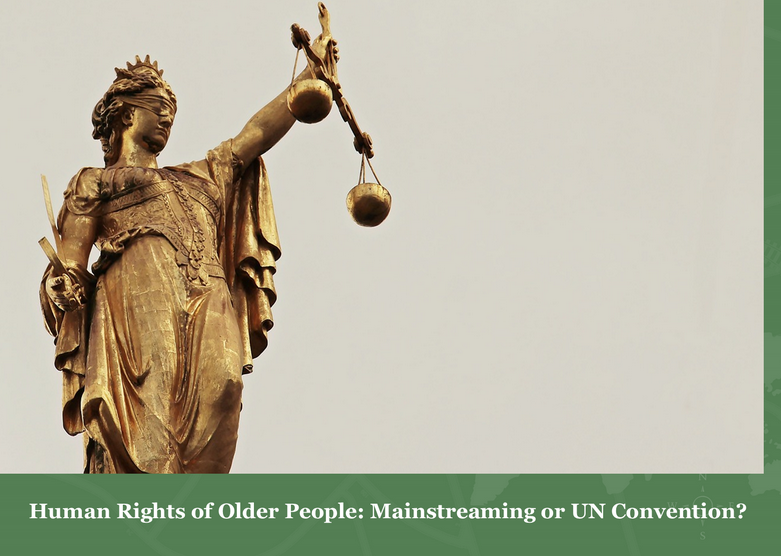Mainstreaming versus UN Convention

Some public policymakers see the mainstreaming of the older person and aging into existing human rights instruments as the way forward. The approach is inclusive in its intent, and action can happen immediately. Yet would mainstreaming, as an alternative to a dedicated UN Convention, bring about the full enjoyment of human rights by older people?
It is not an either/or equation but the exponential power of both.
A good illustration of the exponential power of both is the report on “Older Persons and the Right to Adequate Housing” by Claudia Mahler, the UN independent expert on the full enjoyment of human rights by older persons. There are seven criteria for the “right to adequate housing.” The independent expert’s report outlined unique protection gaps experienced by older people for each of these criteria. This mainstreaming approach helps human rights enforcers and protectors know what needs to be in scope for older persons to enjoy this human right fully.
The report then outlines gaps outside the current seven criteria and calls for a UN Convention. Examples of protection gaps include age discrimination, ageism, and multiple forms of intersecting discrimination faced by older persons. Examples of criteria gaps include those in the areas of supportive housing and aging in the community.
Protocol as a Means of Mainstreaming is Not Optimal
In the earnest belief of getting things done faster, one may say, “Why not just add a protocol to address older age on the right to adequate housing specifically?”
To do so will be a large and complex undertaking. For example, the two international covenants on economic, social, cultural, political, and civic rights were adopted and ratified between 1966 and 1979 when the 100-year life was beyond imagination. Also, the protocol approach lacks integration across the multi-faceted dimensions of aging. For these reasons, population-specific UN conventions were adopted and ratified for women, children, and people with disabilities. These conventions recognize the potential and challenges that are unique to each of these population groups.
So why should older people today and our future older selves not be recognized and protected by a UN Convention, especially given our growing longevity narrative?
Mainstreaming is not enough. Voices calling for a UN convention are ringing loudly, and there is ample evidence:
- be it the recent mainstreaming discussion at the UN Open Ended Working Group on Ageing,
- the Global Rally a month ago,
- the Global Madrid International Plan of Action on Ageing Review earlier this year (item 75c),
- the 2022 Multistakeholder Meeting on the human rights of older people,
- the 2021 resolution adopted at the UN Human Rights Council,
- or the analytical and normative reports by the UN High Commissioner for Human Rights.
Let’s make this a game-changing year for older people at the 75th anniversary of the Universal Declaration of Human Rights and move forward with drafting a UN Convention for the rights of older people.

